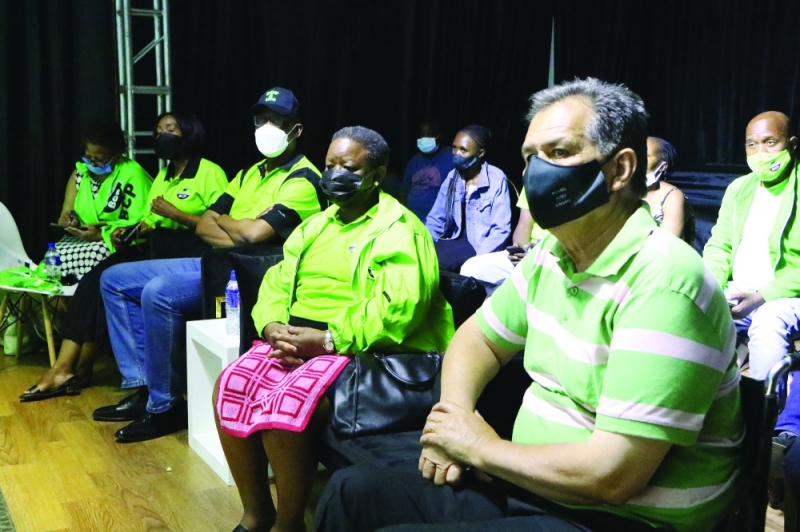BCP, AP to break UDC opposition monopoly – Analysts
Chakalisa Dube | Monday September 19, 2022 06:00


The UDC is a coalition made up of the BCP, Botswana National Front and new entrant, Botswana Patriotic Front (BPF). The UDC has fallen out with its coalition partners over governance issues.
What is increasingly becoming certain is that the BCP will work with the AP at the 2024 general election. The BCP is likely to play a leading role in ensuring that its coalition with AP gains acceptance.
It is not a secret that the rationale behind the BCP-AP relationship is to play a meaningful role in local politics. It is also worth noting, to attain prosperity, the BCP and the AP must navigate a few risks and challenges.
The first challenge that the two parties will have to overcome is earning the recognition and admiration from the voters. Acceptance remains a challenge to the BCP and the AP. By-elections at Bophirima and Moselewapula can be used as the main point of reference.
The parties were shunned by voters at both polls at the expense of the UDC. The by-elections cannot be completely used as a litmus test for the 2024 general election or the viability of their pact. But they do indicate the amount of effort the two parties need to build a trajectory of enthusiasm and gaining tolerance from voters in the build up to the 2024 general election.
Another danger is the volatile environment within the UDC and by extension the opposition politics. The turbulent environment in the opposition can undermine the capability of the BCP-AP to perform at their best or drum up support for their relationship.
Even president of the BCP, Dumelang Saleshando admitted that the instability in the opposition is very detrimental to its existence. “The unending bickering in the opposition has been holding up the BCP and has to be stopped one way or the other in the shortest possible time,” he said when addressing the party’s conference in Mahalapye two months ago. The two parties also have a daunting task of unifying and strengthening their structures. Some AP members have quit the party since the idea to work with the BCP was mooted.
There are also AP members who reportedly want the party to join or work with the UDC in 2024. On the other hand, the BCP has been rattled in some of its constituencies. Some good example are the constituencies of some of the MPs who were recently expelled by the party apart from Okavango, where the party still enjoys much following.
The two parties need a well thought or sensible approach to counter or deal with their aggrieved members or instability in some of their lower structures. Failure to do so might hurt their ambitions of building a prosperous pact.
They will ultimately become political entities with solid ideologies but without members to leverage on. Despite several disadvantages, the two parties have several factors that they can leverage on to boost their coherence.
For example, the ideological differences of the two parties appear to be in sync. Their ideologies are anchored by good governance and a higher degree of economic protectionism. From a distance, the two parties do not have an element of big brother attitude towards each other. This to some extent offers them a good foundation to coagulate their relationship.
The other notable aspect for the two parties is that they have a track record that shows their commitment to defending the tenets of democracy, holding the national leadership accountable and speaking for the marginalised. Consistency in that regard can eventually earn them public approval. The parties can also capitalise on their strong administrative background to build a solid pact.
University of Botswana (UB) political analyst, Kealeboga Dipogiso believes that despite their several weaknesses the BCP and AP can provide an alternative to BDP and UDC in several ways.
He added: “This platform creates a choice for those who neither trust the BDP {Botswana Democratic Party} nor UDC to find refuge.” “It looks like Batswana are desirous of a united opposition to unseat the BDP.
In such desire, there are arguments around issues of governance, the model and trust amongst others. It looks like those same issues are rampant at the UDC. This makes the UDC an untrustworthy alternative hence the necessity to form an alternative coalition,” posited Dipogiso.
Despite having been rejected twice at the by-elections Dipogiso assumes in his favour that the two parties will gain acceptance as their relationship gains momentum. “The parties have a fair share of following, which in the past played a role in housing alternative power resource, and ultimately denying UDC a win.
In this regard, in 2014 it was BCP, whilst AP's turn was 2019.”
Dipogiso elucidated that the relationship between the AP and BCP may not lead to victory in national elections, but it will beat down the UDC's monopoly in opposition politics. “It will also make it difficult for UDC to win many seats.
So their viability may not be tested from the perspective of winning a general election, but also creating a refuge for people who don't want BDP and UDC.” Another political analyst from UB, Mokaloba Mokaloba believes that the BCP-AP relationship cannot win power but break the UDC monopoly in the opposition politics. He, however, pointed out that breaking monopoly is not enough as many Batswana are yearning for change.
